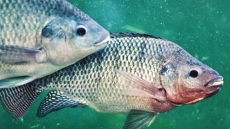An early onset of drinking is a risk factor for subsequent heavy drinking and negative outcomes among high school students, finds a new study.
Researchers asked 295 adolescent drinkers (163 females, 132 males) with an average age of 16 years to complete an anonymous survey about their substance use.
These self-report questions assessed age at first intoxication - for example, "How old were you the first time you tried alcohol/got drunk?"
They also took stock of the previous month's consumption of alcohol, including an assessment of the frequency of engaging in binge drinking.
"Teenagers who have their first drink at an early age drink more heavily, on average, than those who start drinking later on," said Meghan E. Morean, an assistant professor of psychology at the Oberlin College, Ohio and adjunct assistant professor of psychiatry at Yale School of Medicine.
The findings also suggest that how quickly teenagers move from having their first drink to getting drunk for the first time is an important piece of the puzzle.
"In total, having your first drink at a young age and quickly moving to drinking to the point of getting drunk are associated with underage alcohol use and binge drinking, which we defined as five or more drinks on an occasion in this study," Morean noted.
We would expect a teenager who had his first drink at age 14, and who got drunk at 15, to be a heavier drinker than a teenager who had his first drink at age 14, and waited to get drunk until age 18, researchers emphasised.
"The key finding here is that both age of first use and delay from first use to first intoxication serve as risk factors for heavy drinking in adolescence," said William R. Corbin, associate professor and director of clinical training in the department of psychology at Arizona State University
The study is scheduled to be published in the journal Alcoholism: Clinical and Experimental Research.





